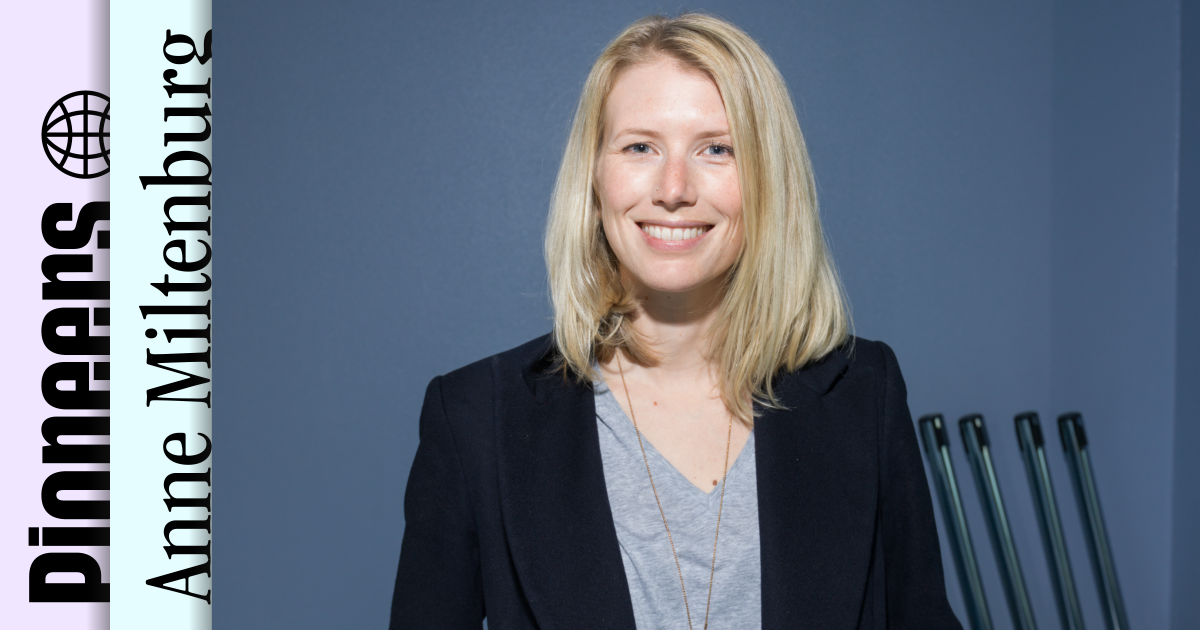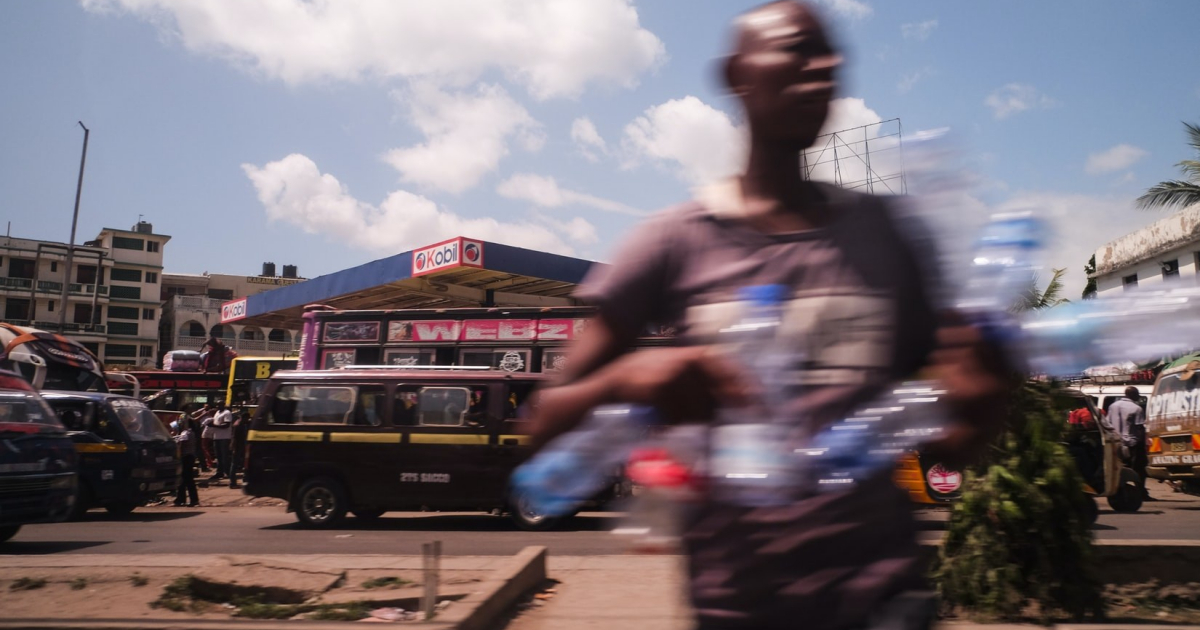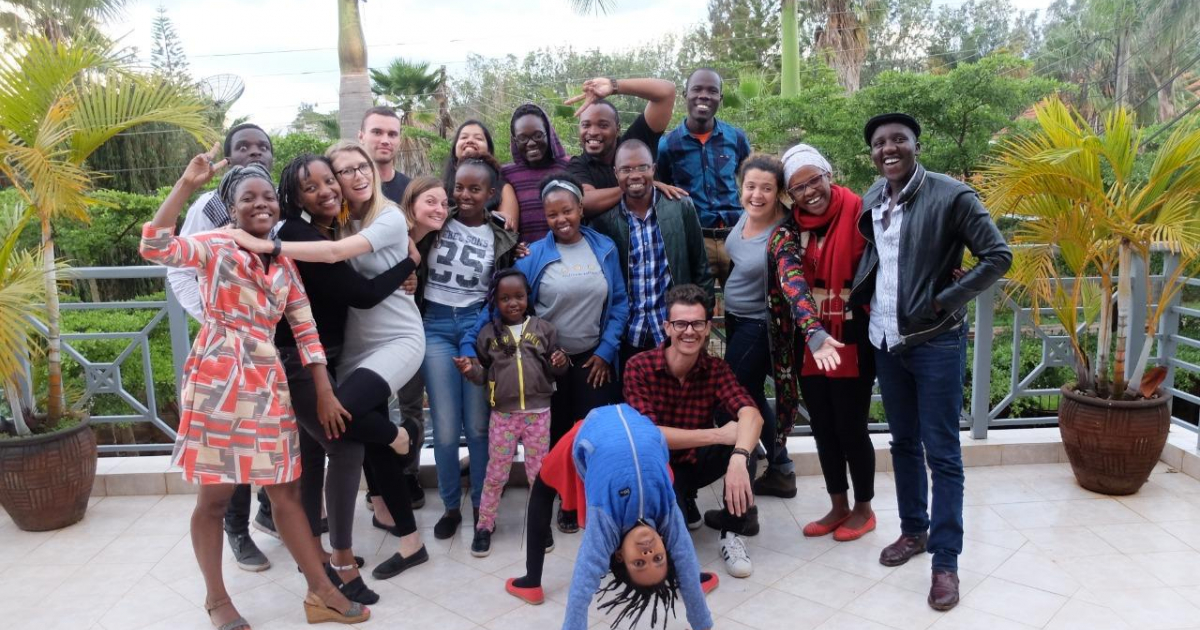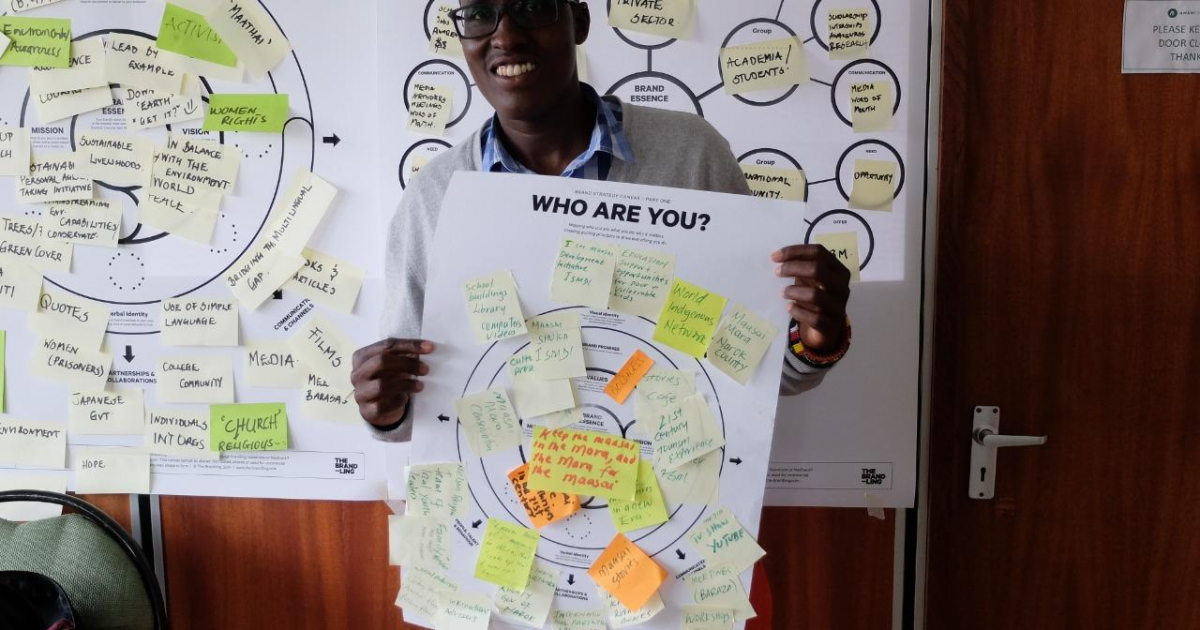Our Pioneer in Nairobi, Kenya: Anne Miltenburg

Our Pioneer in Nairobi, Kenya: Anne Miltenburg
Born and raised in The Netherlands, Anne Miltenburg, our Pioneer of the week, has over sixteen years of experience as a brand developer. She has worked with organizations and people as diverse as tech companies, artisans, women's rights activists, and bankers, from Zambia to Tunisia and from the USA to Saudi Arabia. She currently calls Nairobi, the world's capital of social innovation and tech, her home. Here she founded Brand The Change, an education company that combines the power of training, community, and tools to help change makers sell the change they want to see effectively. We speak with Anne to find out more about life in Nairobi and what it is about living there that makes it creatively different and inspirational.
Through our Pioneers series, in collaboration with Nils Adriaans, we catch up with members of the Dutch Creative Community living abroad and ask them to send back personal ‘messages in a bottle’ about life away from the Netherlands.
Image above by Ivo van der Bent
How did you end up in Nairobi? What drove you?
It’s a move that was a long time in the making. I was always an idealistic kid: became a vegetarian at the age of 8, wrote school papers about Apartheid, you know, the annoying goody two-shoes kid. I became a designer because I thought it was a role in which I could do something meaningful in the world. I graduated on a research project on visual communication on HIV/AIDS in Mali in 2004, but was quite disillusioned by this first experience in the development aid space.
When I got back I was offered a job at Studio Dumbar, and I was excited: the commercial world of branding seemed a straight forward, honest space by comparison. I loved my work over the next decade, but missed the social engagement.
Coming of age in the Naomi Klein No Logo era, brands had a really bad reputation. The idea that you could use the power of a brand for good was pretty much non-existent. But I felt the work that I did would be so incredibly useful to advance the amazing ideas for change that I saw each day. It would have been easy to just say, ok, switch to consultancy with charities or social enterprises, but that felt shortsighted to me.
So when I left my role as Creative Director at Interbrand in 2014, I went on a one year journey to discover how we might use the power of branding to advance ideas, products and services for social and environmental change. I wanted to understand what was holding social entrepreneurs back from building stronger brands, and I started a work/travel blog called The Brandling.
I packed my bags and spoke to change makers in Ireland, Tunisia, Zambia, Saudi Arabia and Kenya. I discovered it wasn’t so much about a lack of budget, but mostly a lack of skills, and some dysfunctional beliefs about branding that were holding people back. That’s how Brand The Change turned into an education company that trains social entrepreneurs to think like brand strategists. While I was teaching a class in Nairobi, I discovered it was this amazing hotspot for social innovation and tech, and all the people I wanted to work with were there. It was a no-brainer, really. So I based the company here in 2015.
Image below by Jessica Pamp

What makes you feel at home?
I suffer from a condition I call Fernweh: the longing to be away from home. I’ve spent a decent chunk of my adult life outside of Holland. Feeling at home to me means having a sense of identity and belonging that doesn’t depend on one particular place, one set of people or specific things.
My husband and I have both been away from our respective home countries for many years, and have the belongings from our previous lives boxed up in storage. Together we form a Dutch/Indian/American/Kenyan household, so we create a strong family culture of stories, humour, meals and other little rituals that we use to shape our own sense of home.
Having said that, I am making a bit of a reverse on the minimalist lifestyle. For seven years I tried to live without many possessions, but last year we were in the USA in March for SXSW when all the COVID madness started, and we ended up locked out of Kenya for 7 months and living out of a suitcase in other peoples homes, surrounded by things that are precious to them. That made me a bit jealous, and I always think jealousy can be very useful in that way, that it shows you something that you actually want that’s missing in your life.
What stands out the most there (professionally)?
People’s thirst to move forward. Africa in general, and Nairobi in particular, is where the future lies. Africa has the largest population of young people in the world. The continent is not limited to the kind of nostalgia that permeates Europe and the creative industries there. There is an incredibly tech forward mindset here: it’s not bogged down by the first-mover disadvantage and can just leapfrog over certain steps. Moving to Kenya and being part of that mindset has made it easier for me to take the leap to work digitally and with solutions at scale. We ran our first programme on Zoom in 2016 and we got all these questions - do you really think you can build group culture online? Do you think people can learn remotely? No one is asking me that question anymore, and we have five years of fantastic learnings on how to grow great community learning online. Besides the forward thinking mindset, people here are eager, hard working, creative, and resilient. Living in Kenya has made me a better person both professionally and personally.


What inspires you extremely as a professional?
Our busses here are insane - it’s every designer's dream (or perhaps, worst nightmare). Every bus has its own theme. Think of a touring car refurbished Autobot style, then a big colour scheme, a couple of proverbs from the Bible, and then a portrait of a soccer player, hiphop stars, the pope or even Adele. Inside you will find wifi, flatscreen TVs, blue lights. The artist Dennis Muraguri captures the hustle and bustle of street scenes and busses brilliantly in his woodblock prints. I don’t like being stuck in Nairobi traffic (it’s easy to lose three hours just to go to a meeting), but I love looking at his work from the peace and quiet of my home.
Read/see more about the busses in Nairobi in this New York Times article.

Who are the most outstanding creatives over there?
Too many stories of Africa are told to the rest of the world through intermediaries like myself. There is a new generation of young Kenyans who are changing that, and who are crafting stories by Africans, for Africans. As a new-ish arrival, I love learning from the perspectives of Kenyans, and there are two women at the forefront of that space that I admire greatly.
Melissa Mbugua – she’s made it her life’s work to expand social and economic opportunities in Africa through the creative industries. She co-founded Africa Podfest to inspire and elevate African podcasters and, from where I am sitting, she is doing the larger world a great favour by adding African voices to important conversations.
Wanjiru Koinange is an author and the co-founder of Book Bunk, an organisation that is restoring public libraries in Nairobi and re-imagining them as palaces for the people. I’m such a big fan that I joined their advisory board this year.

What ‘souvenir’ would you bring home?
I don’t have any plans to move back to Holland, but if I ever do, I will forever miss the Kenyan attitude to life. I hope I would be able to take that with me and keep it alive. Last time I flew into Holland, there was a twenty minute line at the customs desk at the airport. A twenty minute wait is nothing in Kenya - people have to deal with a lot of crap here, and you learn to be patient. There were two Dutch women in line in front of me, and they were loudly complaining about how poorly organised Schiphol was, and how terrible this was for them in particular, how if only they were in charge things would be better, on and on and on for a full twenty minutes. I was ready to turn around and get on the next flight home.
Image below: Rachel Clara Reed for The New York Times
